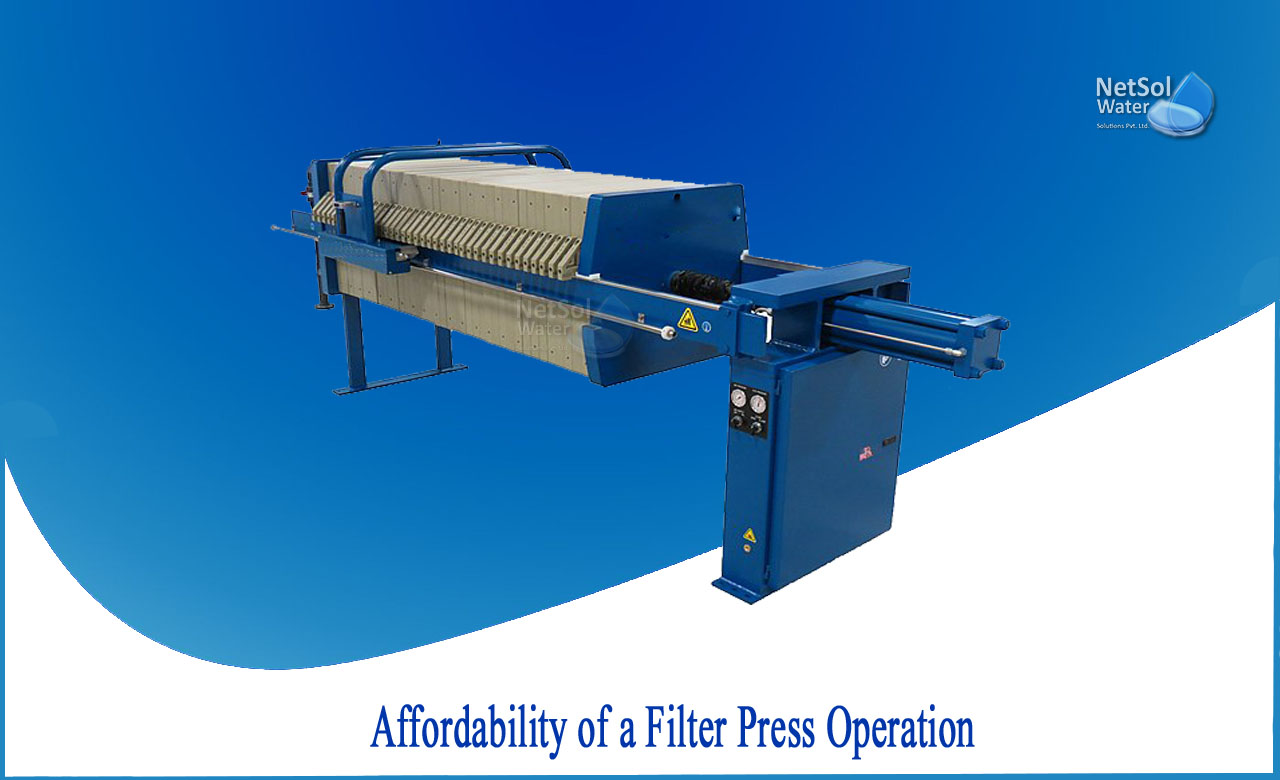What is a Filter press Operation?
A filter is made up of a series of vertical, recessed plates that are pressed against each other by hydraulic jacks at one end. The pressure delivered to the joint face of each filtering plate must be able to withstand the sludge pumping system's internal chamber pressure.This vertical plate construction creates watertight filtration chambers that are straightforward to automate for cake discharge. These are applied to the two grooved surfaces in these plates, finely or firmly meshed.
Sludge is fed through orifices into the filtration chamber, where it is filtered under pressure. They are often located in the centre of the plates to provide for optimal flow distribution, pressure, and sludge drainage within the chamber. Solids sludge builds up in the filtration chamber over time until the final compact case is created.
Can a Filter Press be affordable?
Many of our customers are concerned about the cost of a Filter Press.
Finding the right fuelling equipment for your business can be tough, especially for smaller businesses with a restricted capital budget. To deal with wastewater in the past, a lot of money was spent, engineers were hired, and a lot of chemicals were used to keep the plant working smoothly. As a result, few smaller businesses can’t afford to invest in modern filter press systems to handle their wastewater concerns because they are considered too expensive.
Even the largest and most automated systems are now available in small packaging and are extremely economical to implement thanks to advancements in automation and programmable logic controllers. This essay focuses on these innovative and intriguing industry solutions that can help any firm dealing with wastewater improve its bottom line.
Filter presses are often used to separate liquids and solids. A slurry is pumped into the filter press and dewatered under pressure, and the filter press separates the liquids and particles using pressure-driven filtration across a filter media. These operating principles apply to all sizes of filter presses.
Features of Operation: Automatic vs Manual
Shakers - When a filter press discharges the material from the plates, you must physically help in the removal of the mud cakes from the cloths and plates, which is commonly done on a manual press. Because the size and weight of the cake material are not substantial enough for gravity to always accomplish the job on smaller presses, this becomes much more of a struggle. Plate shaker systems are useful in this situation. They automatically shake the plates to prevent the cakes from clinging to the filter cloths and to facilitate the release of the material to eject it from the plates, removing the requirement for human contact and additional costs that a small operation may not be able to afford.
Real Washes - After a full filtering cycle, the mud material is discharged, and it is common for material to stick to the filtration media and become embedded behind the cloths. To remove it, the operator must rinse the cloths with a high-pressure sprayer. The usage of a 'Real Wash' has now automated this function. This technology produces cleaned cloths and plates without requiring human interaction, lowering operating costs.
The PLC, or programme logic controller, controls all aspects of the system's timing, including the pump, the opening and closing system, the sludge discharge shakers, and any auxiliary equipment such as the homogenizer tank agitator. The PLC orchestrates the logic that allows all of the filter press actions to be completed automatically, making the system fully automated. Before PLCs, the operator had to do these tasks manually, which added to the cost of the filter press systems.
Capital Investment-Price can be problematic, as it usually is, because it varies depending on what you do and the business. The advantage of purchasing a small filter press, is that you can get all of the latest features, such as a shaker system, real-wash cleaning system, and a PLC (programmable logic controller) to run the filter press automation, at a significantly lower cost, allowing smaller businesses to make the capital investment.
Conclusion
Finally, if a small business has wastewater, the cost of a filter press is determined by automation and its ability to pay for itself over time. 'Automation, saving money, staying reliable, and enhancing safety' may now be used to combat the mindset of 'too big, too expensive, and too much effort.'
Netsol Water is Greater Noida-based leading water & wastewater treatment plant manufacturer. We are industry's most demanding company based on client review and work quality. We are known as best commercial RO plant manufacturers, industrial RO plant manufacturer, sewage treatment plant manufacturer, Water Softener Plant Manufacturers and effluent treatment plant manufacturers. Apart from this 24x7 customer support is our USP. Call on +91-9650608473, or write us at enquiry@netsolwater.com for any support, inquiry or product-purchase related query.



